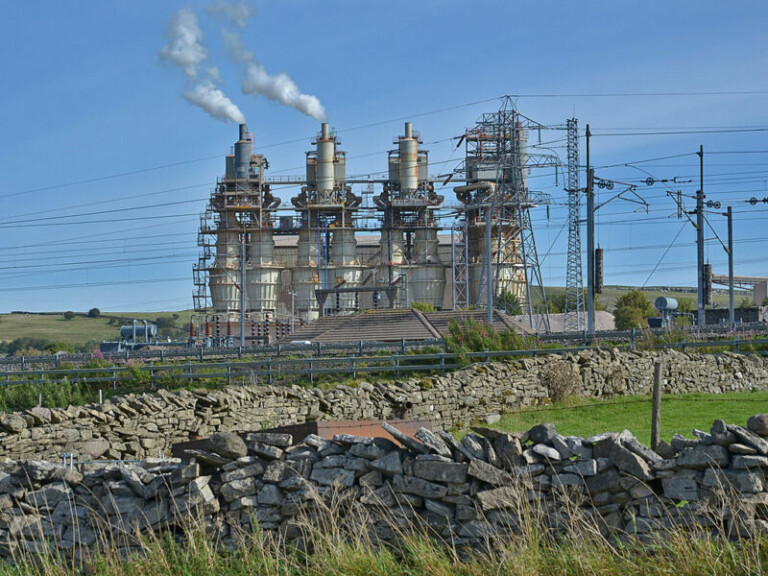Clean energy, jobs and fairness: crunch time in the UK

The social implications of the UK’s energy transition are rising to the top of the climate agenda. Nick Robins sets out the policy and investment levers that are needed to ensure that fossil fuel phase-out and clean energy expansion go hand in hand with good jobs and stronger communities.
Two contrasting realities tell the story of the UK’s steady but sometimes bumpy path to a sustainable and inclusive economy. The first is the impressive expansion of the net zero economy which now supports nearly 1 million jobs, a tally which grew by over 10% in 2024, three times the job creation rate in the overall economy. This is equivalent to just under 3% of total employment, which may seem small but is only slightly below employment levels in the important finance and insurance sector. At the 2024 election, Labour projected that its policies would create a further 650,000 clean energy jobs by 2030: delivering on this will be a key credibility test. As well as opportunities in energy supply, robust policies could also create significant jobs in energy efficiency, notably in housing upgrades across the country.
But the second reality is the high-profile wind-down of loss-making high-carbon assets, which is capturing both public and political attention. This has been symbolised by last year’s closure of the Port Talbot blast furnaces, the decision to shut the oil refinery at Grangemouth and the Government’s recent dramatic takeover of the steelworks at Scunthorpe to prevent its imminent shutdown. The actual and threatened job losses in these cases are existentially significant locally, but are relatively small at a national level. Overall, insufficient advance action has been taken to anticipate these impacts.
All of this is creating a pressing need for the UK to set out how it will achieve a fair and just energy transition.With both the Conservative and Reform UK parties opposing net zero targets, renewed efforts are needed to drive an industrial strategy and investment plan that maximises the socioeconomic gains of the clean transition in the places that need it most. The raw tension between phase-down and scale-up is now fuelling an ill-informed national debate about the benefits and costs of net zero which risks stalling the transition and leaving the country with higher carbon emissions, increased energy prices, lower employment and weaker productivity. For example, current high prices for energy are not because of the rise of renewables in the energy mix but are intrinsically linked to the UK’s continuing dependence on imported fossil gas to set electricity prices, heat homes and fuel industry.
First steps are being taken to turn the tide
The core problem lies in the UK’s failure over the past decade to prepare for the inevitable shift from a high-carbon economy in ways that underpin good jobs and strong communities. The Scottish government has led the way in connecting the energy transition with social justice. At both Port Talbot and Grangemouth, multi-stakeholder ‘transition boards’ are now in place, aiming to remedy the negative impacts of closure.
In the past year, the UK Government has also started to put some of the elements of a new approach into place. When it came into office, Labour filled a policy vacuum by explicitly setting a priority of “establishing a just and orderly transition away from fossil fuels”, particularly in the North Sea. Secretary of State for Energy Security and Net Zero (DESNZ) Ed Miliband says the Government’s plan for achieving clean power by 2030 is driven by a vision of “reindustrialising our heartlands with good jobs”. A long-delayed initiative to smooth the transition for oil and gas workers into low-carbon industries has finally been unblocked with the launch of the energy skills passport, a welcome first step. In addition, a new Office for Clean Energy Jobs has been established to build the skilled workforce that will be needed, with fair pay, favourable terms, good working conditions and increased diversity. In a recent assessment, the Office highlighted that new measures are needed to overcome acute skills shortages, low awareness of emerging job opportunities, an ageing workforce, an inability to tap diverse talent and persistent training barriers.
The establishment of the National Wealth Fund (NWF) has also bulked out the resources of the earlier UK Infrastructure Bank (UKIB) to drive net zero with high quality jobs throughout the UK. Its extra £5.8bn in public finance is targeted towards supporting private investment in green hydrogen, carbon capture, ports, gigafactories and green steel, all of which have significant potential to create employment in regions facing risk of economic decline. In one early example, in 2024 the UKIB invested a combined £100m alongside the Scottish National Investment Bank (SNIB) in Ardersier Port, east of Inverness, to support offshore renewable expansion. The UK Government has signalled that the NWF could invest £200m in the billion-pound redevelopment that is needed at the Grangemouth refinery, alongside the Scottish Government’s new Just Transition Fund of £25m. Additionally, the establishment of GB Energy as a new publicly owned energy company has particular potential for promoting fair work standards across its portfolio as well as generating community benefits through the Local Power Plan, including via shared ownership models for renewables.
Assertive policy, business leadership and societal buy-in now needed
The UK’s long-awaited Industrial Strategy needs to show how the pursuit of the country’s climate and environmental goals will bring tangible employment and community wins, addressing entrenched regional inequalities. Core to this is the development of a comprehensive package that supports those leaving fossil fuels, overcomes the clean energy skills shortage and ensures that the resulting jobs are good jobs with fair working conditions (including in offshore wind). A clean energy workforce plan is expected to be published with the Industrial Strategy this summer.
Alongside the new Industrial Strategy, strong commitments are needed in two of the frontline sectors of the just transition: the North Sea and steel. As Scotland’s Just Transition Commission recently warned, “the decline of oil and gas production in the North Sea has been underway for a quarter of a century and the current path is not delivering a just transition”. The response that emerges from the UK Government’s North Sea consultation has to achieve an orderly wind-down of oil and gas through to 2050, implementing its commitments to end the licensing of new oil and gas operations. Importantly, this needs to be synchronised with the growth of the clean energy sector – rooted in renewables but also including carbon capture, usage and storage (CCUS) and low-carbon hydrogen – as well as oil and gas decommissioning. Estimates from Robert Gordon University and others suggest that with a thriving clean energy sector, employment in the North Sea will be higher than under a business-as-usual approach that involves a continuation of the inevitable decline in oil and gas jobs. But this outcome is by no means automatic and will require a determined focus on workers and communities so that they benefit from clean energy expansion.
The Scunthorpe rescue has made the UK’s forthcoming steel plan even more urgent. With a wealth of scrap, the UK can strategically benefit from the construction of electric arc furnaces (EAFs) at Port Talbot and Scunthorpe increasingly powered by renewables: this would boost economic security by reducing dependence on imported iron and coking coal. Instead of exporting 80% of scrap steel as it does now, the UK could use it domestically, thereby sustaining jobs in the circular economy as well as steel. A further Direct Reduced Iron (DRI) plant could also be supported to maintain the UK’s capacity to produce ‘virgin steel’. One hard reality, however, is that EAF plants require fewer workers than blast furnaces and so a carefully tuned just transition plan will be needed to identify wider job potential, offering employment guarantees as well as training, placement and local economic revitalisation, a plan rooted in social dialogue with the workforce.
These and other sector plans need to be backed by credible public finance packages that bring just transition additionality through the NWF, GB Energy and other mechanisms such as the new Clean Industry Bonus for offshore wind. A common just transition framework could set out in an operational fashion how the complementary funding from these initiatives can optimise the delivery of good jobs and community benefit. For example, the NWF has been billed as the UK’s ‘impact fund’ and this means showing how it delivers social outcomes from its climate and local mandates. As well as the quantity of jobs created by its investments, the Fund could build on its existing ESG and impact frameworks and link its financing toolbox to just transition results in terms of skills, pay and working conditions, union involvement, diversity, community benefit and sector priorities (such as social housing), plus global supply chain standards.
An equivalent just transition framework is needed at GB Energy across its committed £8.3bn of capital, with initial allocations including £300m for offshore supply chain development. Here, a specific commitment has already been made to ensure that its solar supply chain is not implicated in human rights abuses. Linked to the Contracts for Difference mechanism, the Clean Industry Bonus will supplement offshore wind auctions with a budget of £544m for developers that prioritise investment in regions that need it most, including traditional oil and gas communities, ex-industrial areas and ports and coastal towns, as well as cleaner supply chains. For future rounds, this could be supplemented with fair work standards.
Finance and public support are essential to keep the transition on the right track
Public finance is clearly key, to set direction, but private finance will need to provide the bulk of transition investment. To make sure that this is supporting a just and fair transition, business and finance need to step up. First, social standards, opportunities and risks have to be embedded into corporate transition plans (as companies such as National Grid and SSE have done), and also become a core part of the Government’s regulatory framework when its forthcoming legislation to make transition plans mandatory comes to fruition.
Corporates, banks and investors then need to show how just transition is translated into specific actions on the ground. Second, there needs to be further development of place-based investing strategies tailored for the just transition by institutional investors along with banks and community development financial institutions, particularly to connect the development of clean energy assets with the delivery of social value in specific locations.
Across these and other areas, active public support is the essential bedrock for the size of transformation that is needed. This means overhauling out-of-date approaches to citizen engagement and social dialogue in the UK so that procedural justice guides the net zero transition locally, in the workplace and also in terms of national policymaking. New ways of sharing the value created by net zero are needed, including providing people affected by infrastructure expansion with an economic stake through discounts on energy bills alongside community benefit funds. With the vital overhaul of the planning regime underway, it will be crucial that this strengthens meaningful participation and trust-building.
The clean energy transition is accelerating, but it is also under growing threat.To achieve the transformation that is essential in the next five years, policymakers, businesses and society need to build new alliances that place a fair and just transition at its centre.
Nick Robins is Chair of the Just Transition Finance Lab and a member of Scotland’s Just Transition Commission. The author would like to thank Esin Serin, Tim Foster and Sangeeth Selvaraju for their feedback on a draft of this commentary. The views in this commentary are those of the author and do not necessarily represent those of the host institutions.





